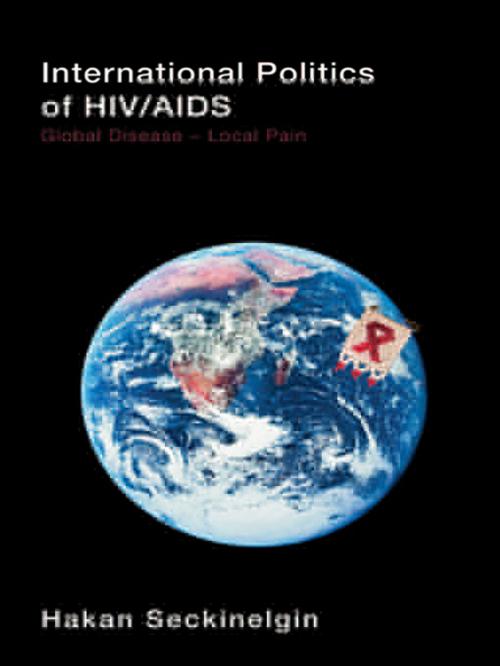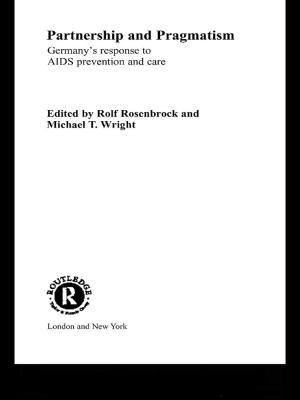International Politics of HIV/AIDS
Global Disease-Local Pain
Nonfiction, Social & Cultural Studies, Political Science, International, International Relations| Author: | Hakan Seckinelgin | ISBN: | 9781134123728 |
| Publisher: | Taylor and Francis | Publication: | August 7, 2007 |
| Imprint: | Routledge | Language: | English |
| Author: | Hakan Seckinelgin |
| ISBN: | 9781134123728 |
| Publisher: | Taylor and Francis |
| Publication: | August 7, 2007 |
| Imprint: | Routledge |
| Language: | English |
This book examines the global governance of the HIV/AIDS epidemic, interrogating the role of this international system and global discourse on HIV/AIDS interventions. The geographical focus is Sub-Saharan Africa since the region has been at the forefront of these interventions. There is a need to understand the relationship between the international political environment and the impact of resulting policies on HIV/AIDS in the context of people’s lives.
Hakan Seckinelgin points out a certain disjuncture between this governance structures and the way people experience the disease in their everyday lives. Although the structure allows people to emerge as policy relevant target groups and beneficiaries, the articulation of needs and design of policy interventions tends to reflect international priorities rather than people’s thinking on the problem. In other words, he argues that while the international interventions highlight the importance attributed to the HIV/AIDS problem, the nature of the system does not allow interventions to be far reaching and sustainable.
Offering a critical contribution to the understanding of the problems in HIV/AIDS in Sub-Saharan Africa, International Politics of HIV/AIDS will be invaluable to students and researchers of health, international politics and development.
This book examines the global governance of the HIV/AIDS epidemic, interrogating the role of this international system and global discourse on HIV/AIDS interventions. The geographical focus is Sub-Saharan Africa since the region has been at the forefront of these interventions. There is a need to understand the relationship between the international political environment and the impact of resulting policies on HIV/AIDS in the context of people’s lives.
Hakan Seckinelgin points out a certain disjuncture between this governance structures and the way people experience the disease in their everyday lives. Although the structure allows people to emerge as policy relevant target groups and beneficiaries, the articulation of needs and design of policy interventions tends to reflect international priorities rather than people’s thinking on the problem. In other words, he argues that while the international interventions highlight the importance attributed to the HIV/AIDS problem, the nature of the system does not allow interventions to be far reaching and sustainable.
Offering a critical contribution to the understanding of the problems in HIV/AIDS in Sub-Saharan Africa, International Politics of HIV/AIDS will be invaluable to students and researchers of health, international politics and development.















